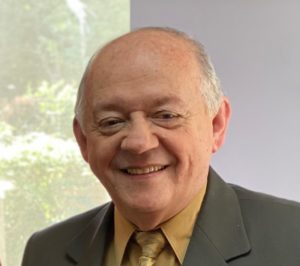
The Texas A&M Energy Institute and the Universidad Privada de Santa Cruz de la Sierra (UPSA) are teaming up with the US Embassy in Bolivia to model an intelligent sustainable energy system for Bolivia.
Led by Dr. Stratos Pistikopoulos, the Director of the Texas A&M Energy Institute, and called “MOISES” (Modeling an Intelligent Sustainable Energy System), this program seeks to address the challenges faced by Bolivia’s energy sector. By leveraging academic dialogue, exchange of experiences, scenario planning, and modeling, the project aims to pave the way for a more sustainable energy future for Bolivia, as well as create a model of action for stakeholders to cooperate. Dr. Oscar W. Serrate, the Dean of Engineering at UPSA, will co-lead project activities in Bolivia.

Bolivia’s energy sector is currently at a critical point. For over two decades, the country thrived as an energy exporter, particularly with the natural gas sent to Brazil, which commenced around 30 years ago with the construction of the Bolivia-Brazil pipeline in 1994. This led to significant investments by major national and international companies that invested in Bolivia’s gas exploration. However, oil and gas production has been declining, resulting in Bolivia becoming a net importer of fuel to sustain its economy and society. Factors such as higher fuel prices and reduced exploration efforts have contributed to this deficit. Consequently, the energy sector faces a major crisis, with the country’s oil company lacking resources for new explorations and no clear strategy for the future. This situation has also economically affected academic organizations as well as public services that receive their funding from hydrocarbon production.

This project aims to address the energy crisis in Bolivia and establish a network of academic exchange and collaboration with the Texas A&M Energy Institute and UPSA in Bolivia. The primary objective is to advance knowledge on transition towards a more sustainable energy system for Bolivia, by developing convergent decision-making frameworks and energy transition scenarios for Bolivia. To support this goal, three workshops will be organized with broad participation from various stakeholders. The first workshop will analyze the current data of Bolivia’s energy matrix to understand its energy situation comprehensively. The second workshop will focus on studying similar models and experiences applied in neighboring countries in Latin America to draw lessons and insights. The third workshop will address the global perspective of energy, considering the evolution of energy systems and their response to the risks posed by climate change. The interactions between Texas A&M and UPSA, facilitated by an exchange program, will help create an international understanding of the economic, social, and environmental impacts of energy transition. This collaboration also aims to enhance UPSA’s effort to establish a new career program on Sustainable Energies by leveraging Texas A&M’s modeling expertise and educational enhancement activities. This initiative holds great promise for transforming Bolivia’s energy landscape and ensuring a more secure and environmentally conscious future for the country.

